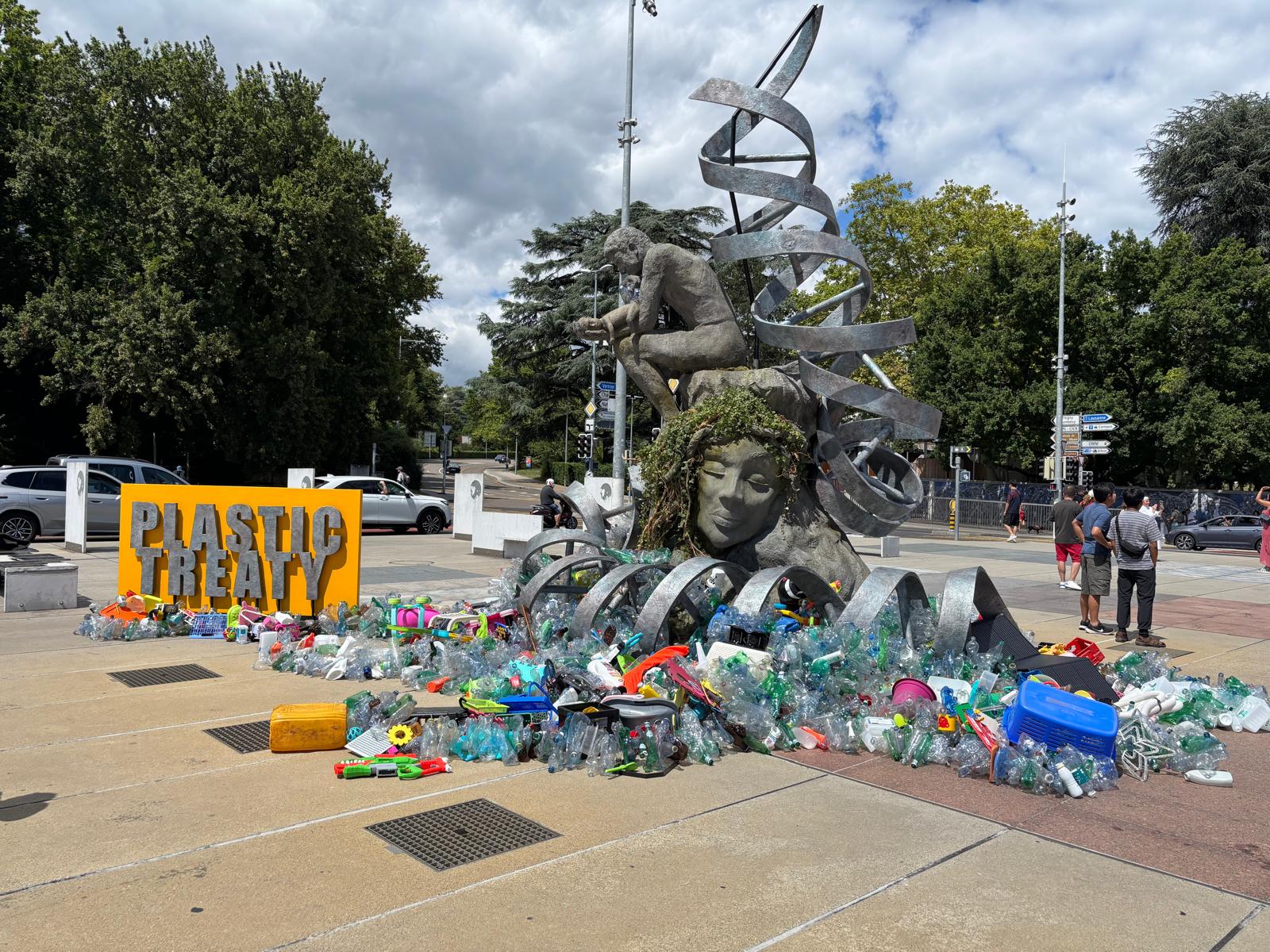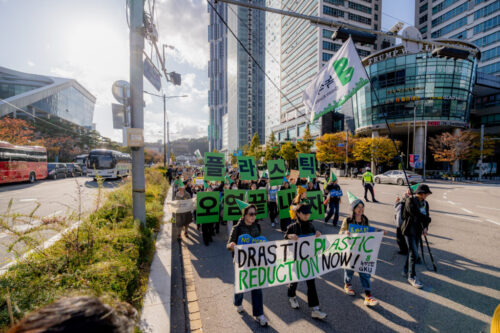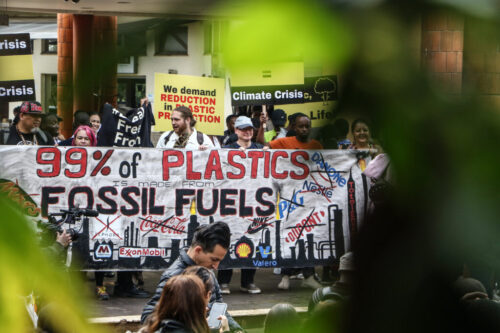This week, world leaders will come together in Geneva in what could be a historic moment to finalize a Global Plastics Treaty. The second part of what was supposed to be the fifth and final session of the International Negotiating Committee (INC) marks a vital opportunity for the world to protect our climate, our ecosystems and our health. But success is not assured.
At the last meeting in late 2024, petrostates and fossil fuel companies wielded their considerable influence to stave off an ambitious Treaty – and they will continue. A weak Treaty would serve their goals even better than no Treaty at all, as it would relieve pressure and allow them room to maneuver out of any commitments. Thankfully, the global anti-plastic movement, led by civil society, is fighting back then and now, ensuring negotiations have continued into this second session. In Geneva, ambitious governments must hold the line, because plastic is too significant a threat to allow any other outcome.
At every stage of its lifecycle, plastic harms people and the planet. Made from 99% fossil fuels, this toxic stew of chemicals, petroleum and natural gas is the fastest-growing driver of industrial greenhouse gas emissions. Not only does it require more fossil fuels to be extracted from the ground, but its production is one of the most energy intensive industries. If left unchecked, plastic production could take up 31% of the remaining carbon budget by 2050.
Despite this wasteful process, roughly half of plastic will be used once and then discarded. Recycling, landfill and incineration pollute our oceans and release more toxic chemicals while the plastic itself never actually biodegrades. The result? The average human brain contains the equivalent of a plastic spoon, and it’s even worse for frontline communities nearby plants.
So what is needed in an effective Treaty that will reverse these perils of plastic? We at Plastic Solutions Fund are looking for five key elements.
-
Addressing the full life cycle, turning off the plastic tap at its source.
Plastic is damaging at every stage, and the Treaty must acknowledge the problem holistically – setting mandatory targets that take into account aspects like trade while ensuring transparency. Most imperative is the reduction of plastic production itself. Right now, companies plan to double output by 2050, which would make the plastic crisis insurmountable.
-
End the use of toxic chemicals in plastic production.
So too must the Treaty phase out the use of toxic chemicals that harm humans and the environment. Nearly a quarter of the chemicals used in plastics production are considered hazardous to our health and the planet. Yet, less than 6% are regulated globally. To detoxify the products we use, the Treaty must require the phase out of all plastic products containing harmful chemicals as well as transparency around and better regulation of potential harms in the future.
-
Developing reuse systems.
An effective Treaty will not just look back, but delineate the way forward. For decades, the petrochemical industry has promoted single-use systems that lead to more plastic – and more damage. The Treaty must throw away this throwaway model, encouraging long-lasting, reusable and locally-driven circular solutions that also foster economic opportunities. At minimum, it should include global criteria on reuse systems, as well as establishing reuse targets, and investing in infrastructure and system innovation.
-
Ensuring a just transition for those most impacted.
Certain communities face the brunt of plastic’s burden. Toxic-emitting production plants purposefully built near disadvantaged communities, pollute their water, soil, air – and bodies. Indigenous peoples are seeing their homes contaminated by plastic toxicants and waste. Global South environments and waste management systems are overwhelmed as Global North countries ship over mountains of plastic waste. The Treaty must acknowledge their rights, positions, and unique understanding to develop better solutions. Equitable implementation will involve all those impacted, including financial support for those like waste pickers who lead recycling and will lose economic opportunity.
-
Establishing a dedicated financial mechanism.
None of this can be achieved without sufficient and flexible funding. The Treaty must ensure mandatory contributions from developed countries so it can be implemented effectively. Luckily, alongside 100+ Global South countries, the European Union recently threw its weight behind such a mechanism, and its backing will be crucial in this final round of negotiations.
Over the last decade, civil society has successfully shifted the conversation from an exclusive focus on ocean pollution to emphasis on plastic production at the source. The UN itself has acknowledged that without civil society, there would be no Treaty. But the fight continues for a Treaty that will count. Allies like the EU must hold strong with the Global South alliance, pushing for these essential measures rather than sinking to the lowest common denominator. At a moment when governments are deregulating climate protections, the Global Plastics Treaty is our best chance to make progress for our climate and our people.



